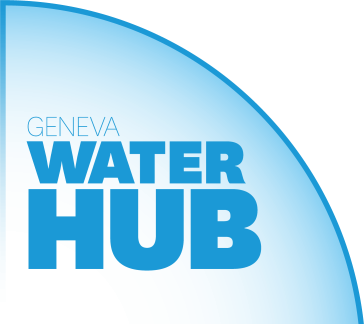
10 years of conflict in Syria - Strengthening the legal regime on the protection of water in times of armed conflict
The conflict in Syria enters its 10th year: in March 2011 began the conflict in this country. In addition to having killed nearly 400,000 people, the war in Syria has also resulted in the largest number of refugees since World War II, with more than half of the population forced to both move inside the country and flee across borders. In February 2020, the United Nations Secretary-General pointed out that almost a million people have fled their homes in the past few months. With the spread of COVID-19 in the Middle East, there is a growing concern that Syria might face a major epidemic - a catastrophic prospect in a country ravaged by ten years of war.
Through its Platform for International Water Law, the Geneva Water Hub works to strengthen the legal regime on the protection of access to drinking water and sanitation during an armed conflict. Through the Geneva List of Principles on the Protection of Water Infrastructure, whose Principles are now available in French, the Geneva Water Hub, with the support of its network of partners, both academics and practitioners, has for the first time, systematized the applicable law in this area.
During the war in Syria, water has been used as a weapon of war by all parties to the conflict in multiple ways. The strategies employed include the deliberate cut offs of water at the source, air strikes and use of explosive weapons against water treatment installations, as well as restrictions on access to humanitarian relief personnel for operation, maintenance, repair and renovation of water infrastructure. On several occasions, the residents of the city of Aleppo have been deprived of the right to drinking water. In 2016, millions of civilians were deliberately deprived of drinking water in the country. The deliberate cutting of water supplies not only violates the human right to water, but has also had an impact on the rights to life and health. The deliberate targeting of drinking water facilities is a clear violation of both international humanitarian law and human rights law that bind all parties to a conflict, both state and non-state actors.
Water has also been used as a weapon to expand the political and economic power of the Islamic State (IS) in Syria. During its territorial expansion in 2014, IS took control of major dams on the Euphrates basin and used these infrastructures to advance its armed forces and achieve its political objectives in the region. The intense battles that the IS has engaged around dams, such as those at Tichrine and Baath in the Euphrates Basin, and the heavy losses it has suffered, demonstrate the strategic importance that these water facilities have represented for the IS.
Through its activities on the protection of water in armed conflicts, the Geneva Water Hub and its Platform for International Water Law aim to consolidate the existing legal regime and to put in place mechanisms to prevent the use of water as a weapon of war. The Geneva Water Hub is leading this initiative alongside the work of UNICEF with its Water under fire publications. The Geneva Water Hub and its Platform also closely follow the developments relating to the Draft Principles of the International Law Commission on the Protection of the Environment in relation to Armed Conflicts.
